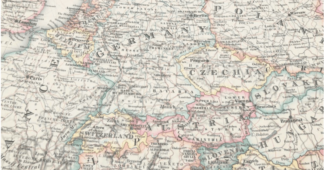Since it joined the EU, the country has lost one-fifth of its population
By Gordon F. Sander
January 5, 2018
RIGA — Atis Sjanits has an unusual remit for an ambassador. The Latvian diplomat is not responsible for relations with another nation — but with his own country’s diaspora.
Sjanits’ job is to respond to the exodus triggered by Latvia’s accession to the EU. Since joining the bloc, nearly a fifth of the nation has left to work in more affluent EU nations: The U.K., Ireland, Germany.
In 2000, Latvia’s population stood at 2.38 million. At the start of this year, it was 1.95 million. No other country has had a more precipitous fall in population — 18.2 percent according to U.N. statistics. Only Latvia’s similarly fast-shriveling neighbor, Lithuania, with a 17.5 percent decrease, and Georgia, with a 17.2 percent drop, come close.
“The reality is that we are losing people — fast,” Sjanits said in an interview in his spare office at the imposing foreign ministry building in the capital.
To be sure, economic migration is not the only reason for the country’s declining population. The small Baltic republic’s comparatively low birth rate and high mortality rate are also contributing factors.
“Borders are open, information about life in other EU states is available and everyone is doing it. So, off our young people go to England or Ireland or Germany” — Aleksandr Rube, journalist
The end result, said Sjanits, is nothing less than a threat to the viability of the Latvian state. Put another way, not enough future soldiers — or taxpayers — are being born.
“Latvia is already a country with low population density,” said Otto Ozols, a prominent journalist and television commentator. “At this rate, in 50 years or so, Latvia may cease to be a nation.”
“It’s five minutes to midnight for us,” he said.
The impact of Latvia’s population crisis is severest, and most evident, in its poorest region, Latgale, in the country’s southeast corner bordering Russia. The average monthly wage in Latvia is €670 a month. In Latgale, people generally earn about half that. “Wages here are a joke,” said Aleksandr Rube, a journalist with Latgales Laiks, a regional newspaper. “Is it any wonder that people want to leave?”
Some young people move to the capital, Riga — whose population of 640,000 is actually slightly on the increase after a long decline. But most simply leave the country. Blocks of empty buildings near the center of the regional capital Daugavpils give the city a sense of partial abandonment.
“It’s just too easy,” said Rube. “Borders are open, information about life in other EU states is available and everyone is doing it. So, off our young people go to England or Ireland or Germany.”
Generally, they don’t return — except to visit.
“I don’t want to come back,” said Irina Sivakova, 22, who left for England several years ago and was in town visiting her sister. “The situation here is too bad.” Asked about the impact of Brexit on how she’s been treated in the country, however, she acknowledged that “a lot of Brits don’t like us.”
People like Sivakova are the despair of Vladislavs Stankevics, the sturdily optimistic head of economic development for Latgale. “There are jobs here,” he insisted in his office in an old Soviet era walk-up in the center. “Basically, everyone who is willing to work has a real chance to stay and work.”
While insisting wages would rise, he conceded they were currently low. “Also,” he continued, referring to the war games that both NATO and Russia have conducted in the region over the last year, “all this talk of war, real or not, doesn’t make things especially attractive for people to stay.” It also discourages foreign investment, he added.
There are some signs that while the tide may not be turning, it is losing strength. According to the Central Statistical Bureau of Latvia, the number of emigres returning to the homeland in 2016 was about 40 percent of those who left. That compares with a figure of 26-37 percent during the previous three years.
“A lot of young people around here think that it is easy to make a lot of money abroad,” said Svetlana Lonska, who returned several years ago to run a successful Zumba fitness gym. “I try to explain to them that making a life in another country is much more difficult than they think.”
She also tries to tell would-be emigres that there is more to life than money. “I am proud that I was able to make a life for myself in my native country and the place where I was born. That means something.”
Nevertheless, she conceded, “people continue to leave.”
Gordon F. Sander is a journalist and historian based in Riga. He also is the author of a number of books about Baltic history, including most recently, “The Hundred Day Winter War.”
Published at www.politico.eu
We remind our readers that publication of articles on our site does not mean that we agree with what is written. Our policy is to publish anything which we consider of interest, so as to assist our readers in forming their opinions. Sometimes we even publish articles with which we totally disagree, since we believe it is important for our readers to be informed on as wide a spectrum of views as possible.











